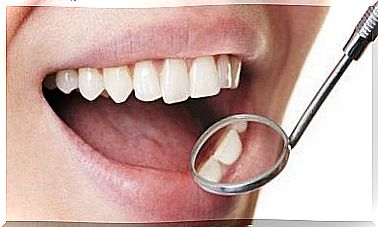What Does Science Say About Caffeine?

There is great interest, both from the public and from science, in the various health effects of a regular intake of caffeinated beverages. Find out what the science of caffeine says!
The research has not been completely conclusive. There is only one known cause-effect association associated with caffeine intake with adverse outcomes during pregnancy.
The science of caffeine says, especially through epidermiological studies, that this substance has a beneficial effect in terms of reducing the risk of chronic diseases.
But in order to understand the health effects of caffeine, one must first know where this active substance comes from.
Where does caffeine come from?
Caffeine is the most widely used stimulant in the world. Its primary sources are:
- Cola nuts ( cola acuminata )
- Cocoa beans (theobroma cacao)
- Yerba mate (ilex paraguariensis), ingested in some South American countries
- Guarana (paullinia cupana)
- Roasted coffee beans (arabica and robusta ) and tea leaves (camellia sinensis), its primary source of caffeine through the diet.
In addition to the above sources, one can find caffeine in some painkillers, sodas, energy drinks and supplements.
The concentration of caffeine varies considerably between the beverages that contain it. However, coffee is the beverage with the highest concentration, as it contains 100 mg per 2.4 dl. Mate comes in second place as it contains 78 mg per 2.4 dl, followed by black tea containing 55 mg per 2.4 dl.

The uptake of caffeine and metabolism
Once ingested, the body quickly and completely absorbs caffeine in the gastrointestinal tract (bioavailability is 100%). Then, it is converted in the liver and forms three important metabolites:
- Theobromine
- Paraxanthin
- And finally, theophylline
What does science say about caffeine once it has been absorbed? This substance has a physiological effect on the body. Below, we will name them all.
Physiological mechanisms of caffeine
First, caffeine acts as an antagonist against the adenosine receptor in the brain. This is because it has the ability to occupy its receptors (primarily A1 in the hippocampus and A2 located in dopamine-rich areas of the brain), since it has a molecular structure reminiscent of adenosine.
By blocking the binding of adenosine in neurons (which induce sleep), it stimulates the activity of the central nervous system. In general, a low intake of this substance (between 20 0g and 200 mg per day) produces positive effects on well-being, attention and energy.
However, higher dosages can trigger nervousness and anxiety, especially in people who are not used to drinking caffeinated beverages.
What does science say about caffeine and Parkinson’s disease?
Parkinson’s disease manifests itself after gradual decrease of dopaminergic neurons in the substantia nigra.
By improving the performance of the dopaminergic system, thanks to its antagonistic effect on adenosine receptors, caffeine stimulates the release of dopamine, reducing the deterioration of fine motor and gross motor skills.

Caffeine intake associated with obesity and diabetes
It is very interesting what science says about caffeine and its effect on weight loss. In this respect, this substance acts on the metabolism, the burning of energy and the thermogenic effect (especially on lipids).
Taking 300 mg of caffeine a day inhibits the AMP phosphodiesterase cycle by increasing cyclic AMP and increasing the release of norepinephrine, by antagonizing adenosine receptors. These are effects that induce weight loss by increasing lipolytic effect.
In addition, several studies suggest an inverse relationship between coffee intake and the risk of developing type-2 diabetes. People who consume at least six cups of coffee a day have a lower risk of developing the disease of 35%. At the same time, people who consume four to six cups have a 28% lower risk of developing the disease.
The effects of caffeine on the uptake of minerals
When consuming a caffeinated beverage during the main meals, it is difficult for the body to absorb important minerals such as iron and calcium.
Some cohort studies have reported that high doses of caffeine increase the excretion of calcium in urine. They thus increase the risk of bone diseases. Experts therefore recommend limiting your caffeine intake to:
- Four cups of black coffee
- Three cappuccions
Note: These recommendations should be followed along with an adequate intake of calcium.
What does science say about caffeine during pregnancy and breastfeeding?
The reason why caffeine is contraindicated during pregnancy and breastfeeding is that it has the ability to penetrate the placenta and stimulate the fetus’ metabolism.
During pregnancy, high doses of caffeine are associated with the development of congenital malformations, miscarriages, low birth weight and changes in the behavior of the newborn.
Likewise, caffeine is directly transferred through breast milk, producing irritability and sleep disturbances. Experts therefore recommend a maximum intake of 200 mg per day.

What does science say about caffeine and its impact on health?
In short, experts know the effect of caffeine on the body. Since the most popular beverage worldwide contains this substance, it is important to know the mechanisms and effects it has on the body, as well as the recommended dosages to avoid change and take advantage of its benefits.
Most studies in humans suggest that a moderate intake (less than 400 mg per day) has effects on body weight and neurodegenerative and metabolic diseases.
However, it is important to note that this substance is contraindicated during pregnancy and lactation and it is also best to control its diuretic effects.








